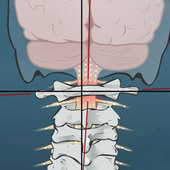Did stress kill the caveman? Everyone has heard the phrase ‘stress is a silent killer’. While one stressful episode won’t kill you, long-term, uncontrolled stress often lies at the root of several chronic diseases, which can.

The stress response is an evolutionary survival mechanism designed to help you flee predators and survive long-term famines. If you were a caveman and being chased by a tiger, your body is going to kick into overdrive by increasing both your heart and breathing rates and sending more blood and oxygen to your muscles to help you escape. Naturally, once you have escaped the tiger, your body will return to its normal resting state.
While our environment has changed quite a bit and you may not be running away from tigers anymore, your nervous system has evolved very little from the caveman era and your stress response is the same as it was 130 000 years ago. Now, modern-day stresses include deadlines at work, waiting in traffic, and that never-ending list of emails sitting in your inbox. Often it is not the stressor that is harmful, but rather your reaction to it that can lead to chronic illnesses such as cardiovascular disease, anxiety and depression disorders, autoimmunity, obesity, and other gastrointestinal issues along with widespread nervous system dysfunction (dysautonomia). For this reason, it is essential to learn how to properly manage your stress.
Ancient cultures including Chinese, Japanese, and Indian have long utilized simple body movements to combat the effects of stress and balance the body. This includes:
- Yoga
- Tai Chi
- Qigong
- Breathing and meditation
What all of these have in common are simple postural poses to help to improve your strength, flexibility, and balance making you more physically resilient. This resiliency helps tone down the stress response and ground your body and mind. Current evidence is also showing how changes in posture can affect mood and nervous system function. Adapting an upright, extended posture may be linked with lower levels of stress hormones and improving mindset.
Your health is the most important investment you can make, and finding a routine and practice that you enjoy is key. By making small changes today to reduce your stress, you can potentially prevent long-term chronic problems in the future. It can be as simple as standing straighter!
For further assistance or guidance, please talk to one of our doctors to see how we can help you stand straighter, move better, and feel better!
Written by Michelle Speranza DC, B.Sc.
Resources
Sapolsky, R.M. Why Zebras Don’t Get Ulcers, Third Edition. Henry Holt and Company, New York. 2004.
https://dash.harvard.edu/bitstream/handle/1/9547823/13-027.pdf?sequence



